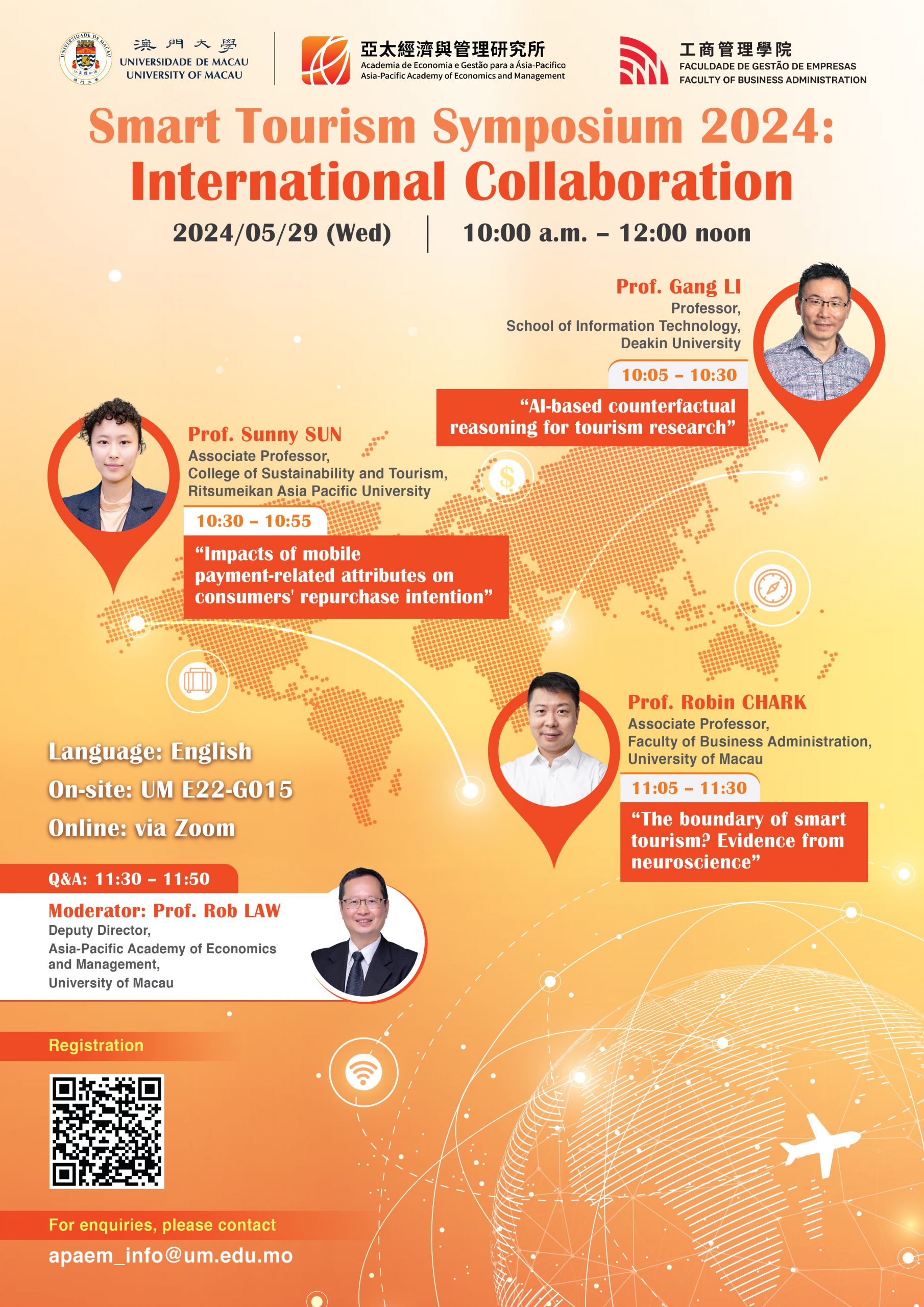
| Time | Agenda |
| 10:00 – 10:05 | Opening remarks |
| 10:05 – 10:30 | “AI-based counterfactual reasoning for tourism research” Presented by Prof. Gang LI
Abstract: Counterfactual reasoning refers to the human ability to imagine possible alternatives to life events that have already occurred, and is one of the most important human cognitive approaches to causal judgement. This talk introduces the recently proposed AI-based counterfactual reasoning algorithm and discusses how this novel causal-driven AI technique could be used to advance understanding of a variety of tourism issues. A case study is presented to demonstrate the application of this novel AI technique in destination competitiveness research. The details of how this novel AI technique can be used to develop targeted strategies to support decision-making to improve the competitiveness of destinations for different groups of tourists are covered. |
| 10:30 – 10:55 |
“Impacts of mobile payment-related attributes on consumers’ repurchase intention” Presented by Prof. Sunny SUN Abstract: Although website functionality and usability have gained much attention of previous research, along with the recent development of mobile payment, payment behavior of travelers has been gradually changed. Nevertheless, limited studies have investigated the impact of mobile payment-related functionality and usability on consumers’ hotel repurchase intention. Hence, this study developed a new research framework based on the website evaluation conceptual model and the theory of planned behavior (TPB). Results show that mobile payment-related usability on customer satisfaction is transmitted by mobile payment-related attitude, subjective norms and perceived behavioral control. The findings can assist tourism practitioners in facilitating hotel reservation processes. |
| 10:55 – 11:05 | Break |
| 11:05 – 11:30 | “The boundary of smart tourism? Evidence from neuroscience” Presented by Prof. Robin CHARK
Abstract: Smart tourism has become a mainstay of tourism research. This phenomenon driven investigation has been very successful in explaining the adoption of information and communications technology (ICT) in streamlining and enhancing the provision of tourism experiences. Some researchers emphasize the contribution of dynamic connection of human experiences using ICT. There is a debate whether these technologies (e.g., AI, robots) could replace human workers in the tourism industry. We believe that while this can potentially be done in most cases, there remains some human touch during critical moments of the service experience that cannot be easily replaced. To support this premise, some neuroscientific evidence will be presented. Specifically, successful hotel executives, who work at the frontline, do have more neurocognitive resources for supporting human interaction than those who work at the back-of-house. This finding suggests that the human side of tourism experience is still valued. |
| 11:30 – 11:50 | Q&A |
| 11:50 – 12:00 | Closing remarks |

